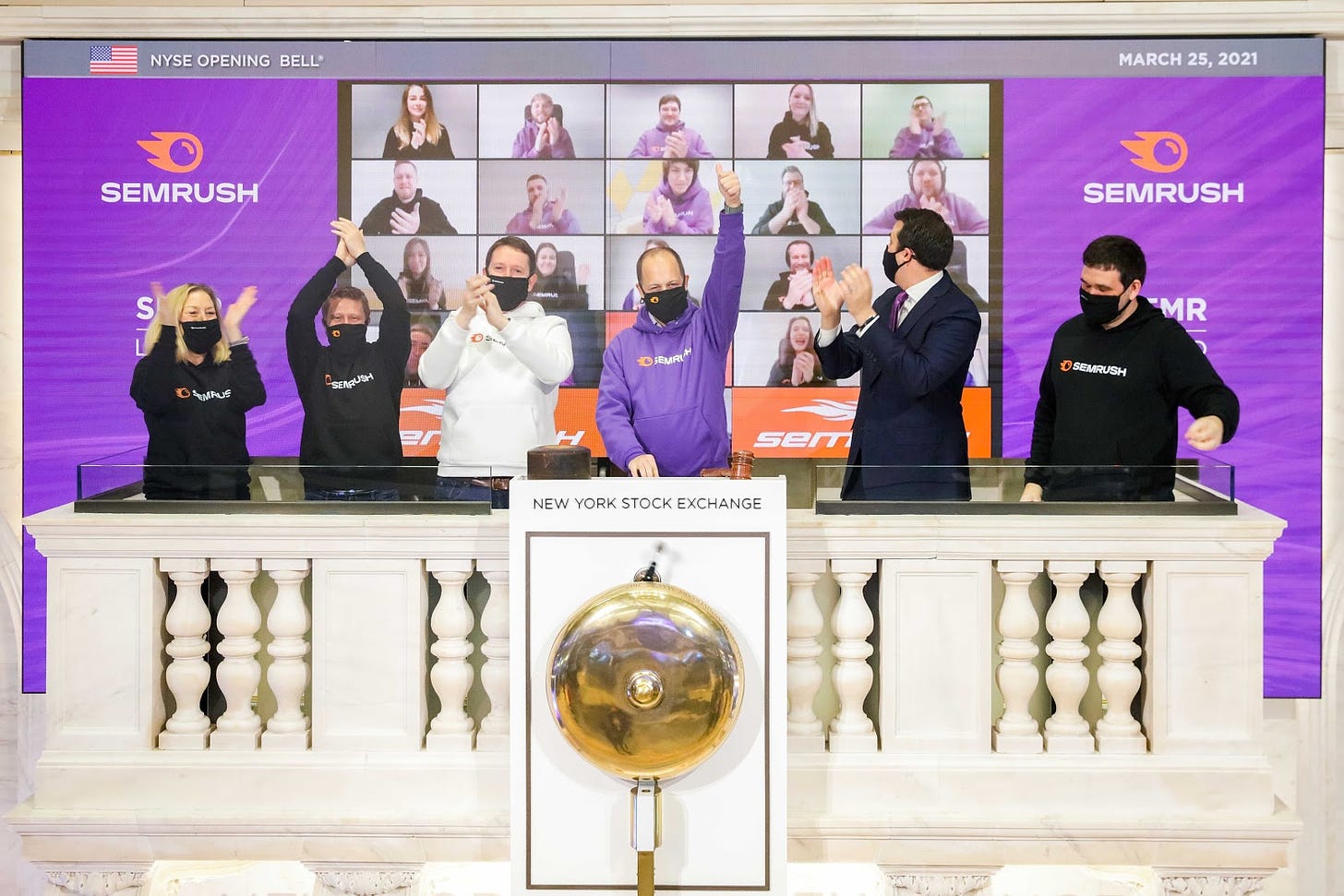NFT exhibit at Hermitage Museum | Yandex robots in Michigan
Hi there,
It’s been a busy week for Russian Tech News, from NFT mania to Yandex’s robot delivery expansion to the U.S. and a funeral services startup hoping to make it in New York.
What’d we miss? Drop me a line at Daria@RussianTechNews.com.
Daria
DIGITAL PAYMENTS
> The State Hermitage Museum, the second-largest art museum in the world, plans to hold the country’s first NFT exhibit this year, according to a March 25 post on the museum’s website. NFTs, or non-fungible tokens, have taken the art world by storm in recent weeks. There is big money in the NFT art world, already exceeding last year’s volume. The museum didn’t disclose which artists will be included in the exhibit.
[Source: The Hermitage State Museum, Cointelegraph]
> Russian companies are investing less in blockchain technologies, according to a global survey by Dell. The experts say that considerations about limited applications outweigh the up-front costs.
[Source: Kommersant]
TRANSPORT
> Yandex is expanding its autonomous robot delivery service to the U.S.
The Russian tech giant plans to launch a U.S. pilot in Ann Arbor, Michigan, after a trial run in Russia last year, according to VentureBeat. The company’s six-wheeled rovers are “capable of navigating around obstacles in most weather conditions during daylight or darkness,” but are still monitored by a remote operator.
[Source: VentureBeat]
> Russian trains are getting a Cognitive Rail Pilot system, an AI-based computer vision to avoid accidents.
[Source: Reuters]
> Suez canal blockage is fueling Russia’s Arctic ambitions. Nikolay Korchunov, the ambassador at large for Arctic Cooperation at Russia’s Ministry of Foreign Affairs, said the need for alternative trade routes to the Suez Canal and the North Sea Route above others will grow “both in the immediate and the long-term,” he says.
[Source: Interfax]
> Russia’s authority responsible for highway construction is seeking to deploy “big data” to help monitor costs of government contracts. If implemented, it would encourage competition and participation of smaller big data players.
[Source: Kommersant]
ENVIRONMENT
> Russia plans to debut a carbon-trading trial in 2022. The plan to start trading carbon credits will kick off in far-eastern island of Sakhalin next year, as a part of the country’s public effort to fight climate change.
[Source: Bloomberg]
> Researchers at Tomsk State University found “airborne plastic fibers” in the snow across 20 Siberian regions. They found that “it's not just rivers and seas that are involved in circulating microplastics around the world, but also soil, living creatures and even the atmosphere.”
[Source: Reuters]
SOCIAL MEDIA
> The Central Bank of Russia is worried about anonymous trading advice shares across Telegram channels and other platforms. The agency is looking at how social media discussions can result in market manipulation.
[Source: Vedomosti, RIA]
> Leading social media site Odnoklassniki is changing its news feed and launching original content as it’s looking to increase engagement. The company is also more concerned about YouTube as a competitor than other messenger apps.
[Source: RBC]
> Moscovites’ digital footprints will be centralized into a unified system. Moscow’s Department of Information Technologies is planning a system upgrade, which will include data about WiFi sessions in public transport, payment of fees, violations of medical restrictions, transportation documents as well as “loyalty indicators and event participation” stats. These instruments will help “identify emerging trends,” Vedomosti reports.
[Source: Vedomosti]
BIOTECH
> Russia begins producing a third COVID-19 vaccine, even though questions arose over the efficacy of the second vaccine. Putin says Russia is on track to herd immunity by “late summer.”
[Source: TASS, Reuters]
> Russia has turned to South Korea and India to help manufacture Sputnik V and meet domestic demand, even as the government promotes Sputnik V globally. “The Russian government has contracted out the manufacture of Sputnik V to a South Korean company that has already sent the vaccine to Russia and plans to do the same with a company from India,” the report said.
[Source: The New York Times]
COMPANY SPOTLIGHT
Russian-Led SEO Company Turns to Public Markets, AI for Growth
It’s not every week that an SEO company goes public. Semrush, run by a Russian-speaking leadership team, listed its shares in New York last week.
The SEO company gained seven million users globally in 12 years of operations. Their next goal: one billion marketers, with the help of AI and automation.
“We envision that artificial intelligence and automation will empower people to innovate, which will lead to an explosive growth in goods and services,” CEO Oleg Shchegolev said. “Marketers will need to figure out how to talk about these innovations, through what channels and to which audiences.”
Moscow-based Funeral Services Startup Wants to Make It in New York
OpenAgent, based in Moscow, has developed an IT-aggregator for American cemeteries. The B2B platform, aiming to become the “Uber of the funeral world,” rolled out a pilot project in New York state in February. The pilot includes one cemetery, 12 cremation companies, and 84 funeral directors according to leading business daily Vedomosti, citing CEO Artem Manilov.
Though not a sexy topic, there is certainly room for disruption of the funeral market amid the global pandemic as well as growing competition in this space.




